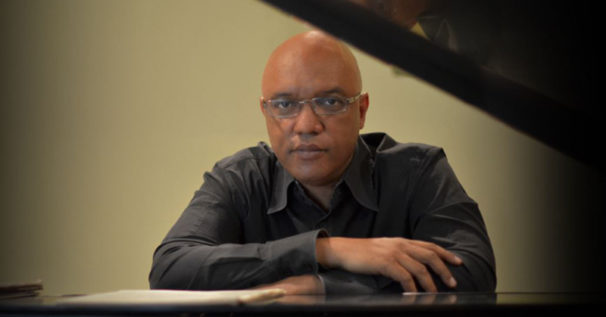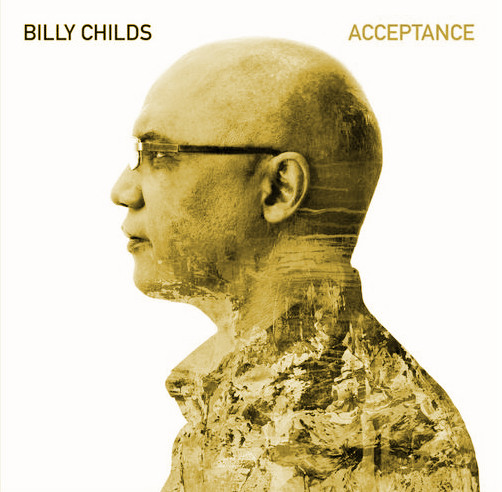
There have been two hallmarks—standards if you will—that have been a part of every Billy Childs album. The first is the journey he’s traveled as a composer. He has always written and, to great acclaim: he has received five GRAMMY ® awards and 16 nominations—many for composition and arrangement. Presently in continual demand for symphonic and chamber commissions, he has also innovated a strain of compositions jazz instrumentation and strings that is unique in the American music lexicon, a genre he refers to as jazz/chamber music.
But for the second hallmark, Childs has always been a player, too—having cultivated his jazz voice in the working bands of trombonist J.J. Johnson and trumpeter Freddie Hubbard. “On my first Mack Avenue recording, Rebirth (Childs’ 2017 album on Mack Avenue Records which won a GRAMMY® Award for Best Jazz Instrumental Album), I wanted to return to a focus on my jazz piano playing,” says Childs.
Acceptance is an extension of that and the musicians make it very comfortable for me.” Childs thrives on group improvisation and has recruited fellow master musicians—saxophonist Steve Wilson, bassist Hans Glawischnig and drummer Eric Harland—as the core ensemble for this collection, Acceptance. Elena Pinderhughes on flute vocalists Alicia Olatuja, Aubrey Johnson and Sara Gazarek, and percussionists Rogerio Boccato and Munyungo Jackson complete the stellar lineup on this recording.
Growing up in a household replete with eclectic musical recordings—during the 1960s and ‘70s, Los Angeles was rife with musical diversity—Childs’ musical influences are wide-ranging. One of the genres he connected to early on was Brazilian music; his parents had records by Antonio Carlos Jobim and Stan Getz, Joao Gilberto, and Sergio Mendes and Brazil ’66. On these records Childs first heard the songs of Brazilian composer Dori Caymmi, with whom he later became close friends. “Dori” is a samba, utilizing Baião and Partido Alto rhythms.
Leimert Park, the South Los Angeles neighborhood, was a fountain of musical inspiration in the 1990s.“You could down there any Saturday night and hear poets, rappers, and jazz—at 5th St. Dick’s and the World Stage. That place was alive!” Childs acknowledges the experience in his “Leimert Park” tune, which he composed with drummers Paul Jackson and Mike Clark, the innovative and groundbreaking rhythm section on Herbie Hancock’s Thrust in the early ‘70s. “Paul played a funky 4/4 bassline,” he notes, “and Mike put down that broken Oakland rhythm against it. That ultra-funky feel was recaptured beautifully by Eric [Harland] and Hans [Glawischnig] on this track, which also features Munyungo Jackson adding a great conga pattern that gives the tune an African and urban sound.

“Do You Know My Name?”—a meditation on human trafficking—is a Childs song. “I think of it as lieder,” he says, “or as an excerpt from a larger work, like an opera or an oratorio. Alicia Olatuja was incredible in her interpretation of the piece. Her deep connection with the words, combined with virtuosic training on her instrument, made her able to perfectly communicate the silent anguish and pathos of the character in this human trafficking story.”
Childs first heard the Gershwin standard, “It Never Entered My Mind,” from his close friend, the late pianist Mulgrew Miller (1955-2013). “Mulgrew was playing it at Clancy’s Crab Shack in Glendale, and what he played on the tune was so beautiful, I knew I had to learn it,” he relates. “So, I asked him to show me the tune after the show, which he graciously did. We were like brothers,” he wistfully notes. “Every time I play this song, I think of Mulgrew.”
A Langston Hughes poem inspired “Quiet Girl,” which Childs recorded on his first album, Take for Example This… (Windham Hill Jazz, ‘88). “If you want to understand my career,” he says, “how I developed and arrived at the jazz chamber music concept—my first four Windham Hill Jazz albums are an excellent document of that journey. It’s a shame that these recordings are out of print because that means that a large gap of my recording history is essentially deleted. So, it’s great to get an opportunity to recast songs like ‘Quiet Girl’ and ‘Twilight is Upon Us’ in a new light.”
“Twilight is Upon Us” has many influences, from Egberto Gismonti to the Mahavishnu Orchestra, but the most profound was the Pat Metheny Group, specifically Lyle Mays. Childs heard that band in 1989, and was stunned at the well-conceived pieces and the tremendous improvisation. “It changed my whole concept,” Childs says. “I decided I wanted to attain what Metheny and Lyle Mays did that night. I started writing pieces which explored longer forms, with more layered counterpoint and sonic environments. One of the first was ‘Twilight is Upon Us.’
“Oceana,” the improvised piece that concludes the album, is a study in simultaneous group composition. “A narrative kind of evolved, as we were recording the improvisation, which had to do with the ocean. Steve started us off with the whale sounds, and we just followed that cue and ended up painting a picture about the sea.”
